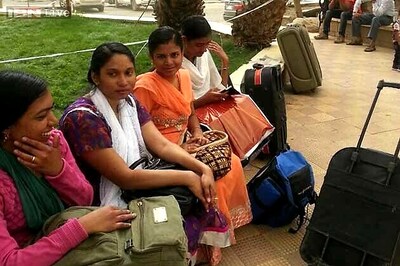
views
Keeping data at the forefront, finance minister Nirmala Sitharaman in her union budget 2020 speech spoke about how the new economy is based on innovations that disrupt established business models. Artificial intelligence, Internet-of-Things (IoT), 3D printing, drones, DNA data storage, quantum computing, etc., are re-writing the world economic order.
“Data is the new oil” said the finance minister and added that analytics, fintech, and internet of things (IOT) are changing the way we deal with our lives. The finance minister also proposed a digital platform to facilitate seamless application and capture of IPRs (Intellectual Property Rights) along with an Institute of Excellence that would work on the complexity and innovation in the field of Intellectual Property.
More importantly, Sitharaman said that mapping India’s genetic landscape is critical for next-generation medicine, agriculture and for biodiversity management. She proposed two new national level Science Schemes, to create a comprehensive database.
Back in July 2019, it was reported that the first human genome mapping project in India was in the works. Implemented by The Department of Biotechnology (DBT), Ministry of Science and Technology, the project involves scanning of 20,000 Indian genomes (in the next five years) in order to develop diagnostic tests and effective therapies for treating diseases like cancer. The project was said to be carried out in two phases:
-The first phase of the project involves sequencing the complete genomes of 10,000 healthy Indians.
-Second phase involves genome sequencing of 10,000 diseased individuals.
Data on human sequencing would be accessible to researchers through a proposed National Biological Data Centre envisaged in Biological Data Storage, Access and Sharing Policy. The significance of this project is to provide new advancements in medical science and in disease management. Through genome sequencing methodology, researchers can easily detect the disease related to a genetic disorder. The genome project is also said to improve the techniques of genetic screening for diseases prior to birth.


















Comments
0 comment